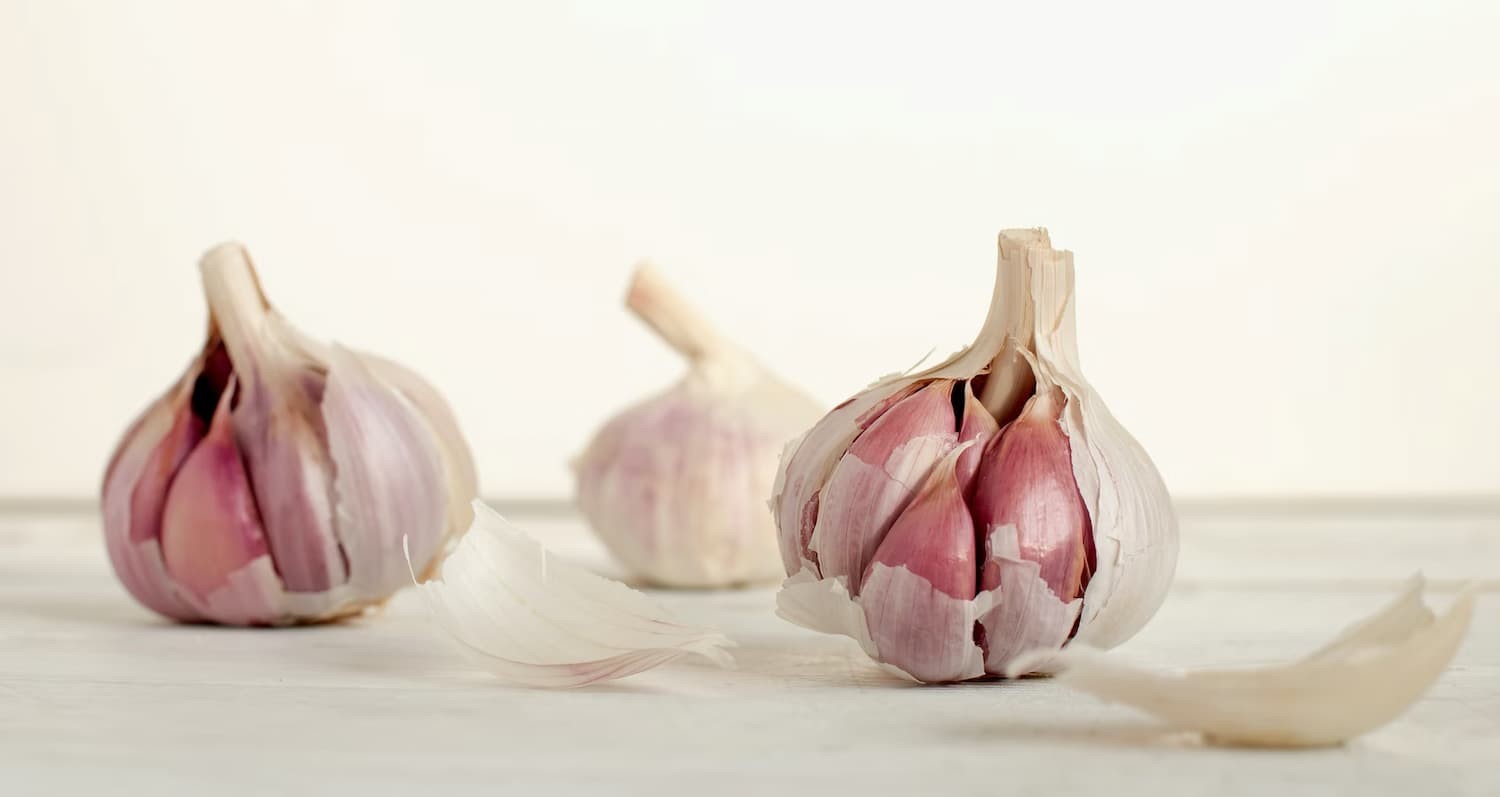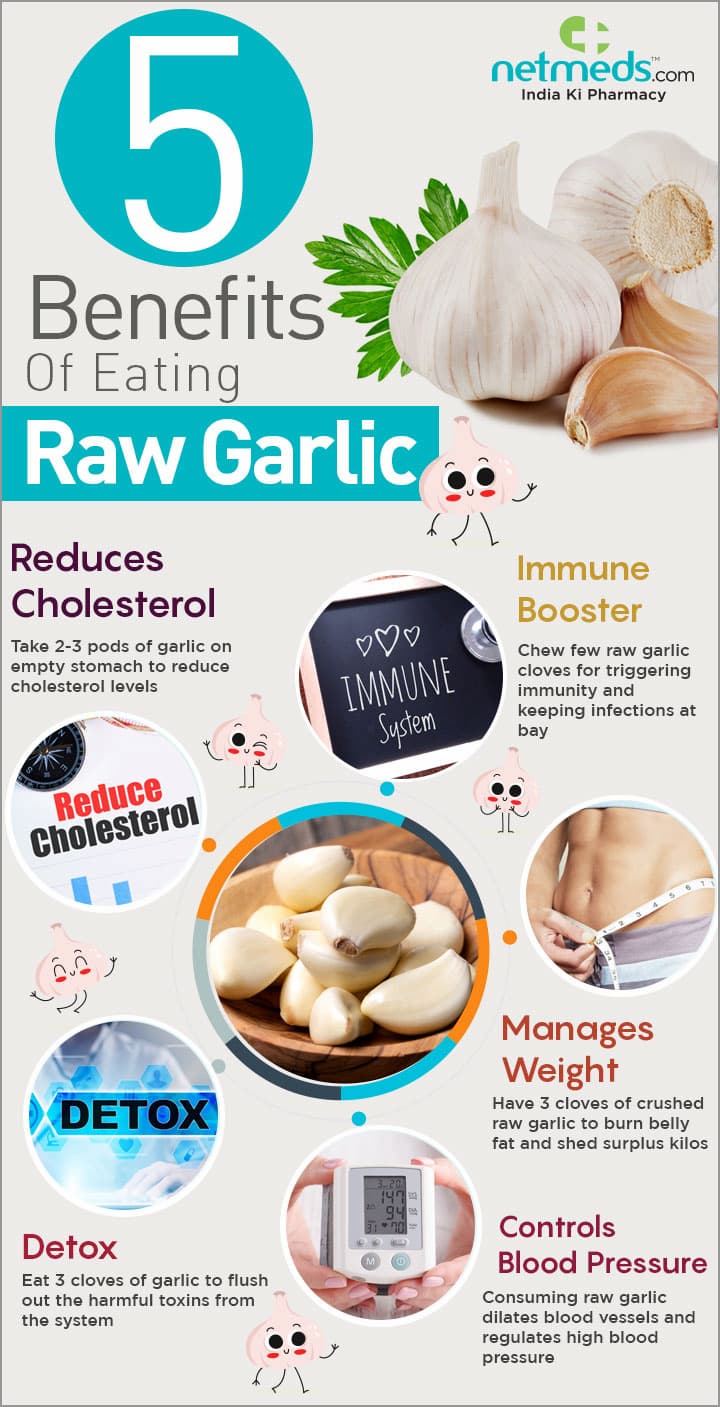
Allicin is the major compound in garlic that is responsible for its hot taste and many of its health benefits. Read on to learn more.
What is Allicin?
Allicin is the major biologically active compound of garlic, and it was first reported by Cavallito and Bailey in 1944. It is the key ingredient responsible for the broad-spectrum antibacterial activity in garlic. Allicin is a sulphur-containing organic compound found in alliaceous plants, which are all cultivars of the species Allium sativum.
Interestingly enough, allicin is not found in fresh garlic. Fresh garlic contains allinase and alliin, which are contained in different parts of the plant. This is designed as a defence mechanism against pathogens in the soil. When the cloves are attacked by pathogens, the membranes of these compartments are destroyed and within 10 seconds, the alliin is converted into allicin. Allicin is relatively stable if it is kept cool but starts to degrade when heated. As well as garlic, allicin may also be found in onions, scallions, leeks, and shallots.
Benefits of Allicin
Allicin has a wide range of health benefits that you can reap from eating raw garlic. The medicinal properties of allicin from garlic can help to prevent cardiovascular attacks, boost immune function and restore suppressed antibody responses. The positive effects of allicin's antimicrobial properties have also been shown to be useful in treating a variety of ailments ranging from the common cold to cancer.
Allicin has been shown in peer-reviewed studies to lower total cholesterol, as well as bad cholesterol and triglycerides, which are responsible for plaque build-up in blood vessels, while also increasing good cholesterol. This in turn helps in the prevention of cardiovascular diseases like heart disease, atherosclerosis and stroke. Allicin may also support the overall health of the circulatory system. Allicin also acts as an anticoagulant and can help to regulate blood pressure levels.
Based on animal studies that were conducted to see the ability of the sulphur compounds in garlic to reduce body weight, allicin significantly reduced the weight of mice fed a high-fat diet. This is a clear indication that besides its antibacterial properties and antifungal activity, allicin also has the capacity to support weight loss.
Source: netmeds.com
Allicin as an Antioxidant
Allicin also provides antioxidant protection to the body. It increases the blood levels of two antioxidant enzymes – catalase and glutathione peroxidase. Allicin acts as an effective antioxidant against the oxidative damage caused by nicotine and protects vascular endothelial cells from oxidant injury. It also prevents the oxidation of LDL cholesterol and inhibits lipid peroxidation in the liver, which slows the ageing process in liver cells.
How to Enjoy the Beneficial Effects of Allicin
To reap the benefits of garlic and the sulphur compounds of its allicin, you must eat it raw. Chop or crush a garlic clove and then chew on it. Allicin is formed when an enzyme called myrosinase reacts with a compound called alliin. When cloves of garlic are crushed, chopped or chewed, the myosinase enzyme from the garlic cells breaks down alliin into allicin. This reaction can take up to 15 minutes for some people and as little as 1 minute for others.
Other garlic preparations include garlic oil and garlic-infused vinegar, which ensure you get all of the herb's sulphur-containing compounds' therapeutic effects. Freshly cut or crushed garlic that is stored in oil appears to retain more of its health benefits than spices stored in airtight containers do. Allicin is also more stable when crushed and stored in apple cider vinegar instead of water. Storing the herb in lemon juice can also boost the antimicrobial activity of allicin, as the mixture of lemon peel and garlic extracts reinforce the compound's antibacterial activity.
Choosing an Allicin Supplement
Because allicin is very healthy, many people take dietary supplements that contain it with each meal to help prevent disease and improve their overall health. If you choose to take allicin in supplementary form, be aware that most garlic supplements do not contain allicin itself. Some products are standardised to contain a certain amount of alliin and will list the theoretical allicin potential. Some supplements will claim to contain as much or more of allicin as a daily dose of fresh garlic, but you will need to read the labels to be sure. The content of allicin is the most important indicator and the allicin should be defined in terms of micrograms or milligrams and be in a standardised amount.
Allicin powder extract is the only way to get a stable and standardised amount of allicin that is ready to be used by the body directly. Allicin in powdered form is just as effective for cardiovascular health as freshly crushed or chopped garlic, not to mention it has the same level of antiviral activity.
Supplementing with allicin has not been linked to any adverse effects. If you are on any medication, however, you should consult your healthcare provider like a nutritionist or seek medical advice to ensure that your preferred allicin supplement works properly in your body.
Originally published on Nov 29, 2008









